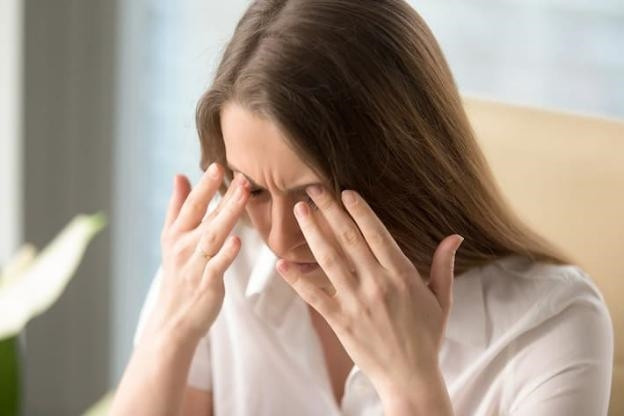Early detection of high blood pressure signs is very important, helping patients have an early and appropriate treatment plan...

Headaches can be a warning sign of high blood pressure
Early detection of high blood pressure is important, as high blood pressure is often called the “silent killer” because it may not have any early symptoms. High blood pressure puts you at increased risk of heart disease, heart failure, and stroke, among other dangerous conditions…
Here are some warning signs of high blood pressure:
Out of breath
Sweaty hands and feet
Night sweats
trouble sleeping
Headache
Tired…
In addition, a variety of symptoms can be indirectly related to high blood pressure but are not always caused by high blood pressure, such as:
- Blood spots in the eye: Blood spots in the eye (subconjunctival hemorrhage) are more common in people with diabetes and/or high blood pressure. This can also be optic nerve damage due to untreated high blood pressure.
- Facial flushing: This condition can occur when your blood pressure is higher than normal, but it also occurs frequently in people who do not have high blood pressure.
- Dizziness: Although dizziness can be a side effect of some blood pressure medications, it is sometimes associated with high blood pressure. However, this symptom should not be ignored, especially if it comes on suddenly. Sudden dizziness, loss of balance or coordination, and difficulty walking are all warning signs of a stroke. High blood pressure is the leading risk factor for stroke.
Treatment of high blood pressure usually begins with lifestyle changes, including reducing salt in the diet, losing weight if needed, stopping smoking, cutting down on alcohol use, and exercising regularly...
If lifestyle changes fail, your doctor may prescribe medication to lower your blood pressure. Take your medication as prescribed and on time.
Blood pressure medications should start working within a few days. However, because high blood pressure is a long-term condition that often has few or no symptoms, remembering to take your medication can be a challenge.
In fact, in many cases, when blood pressure is stable and the body is normal, people neglect taking medication. This is dangerous, because blood pressure is managed by medication combined with a healthy lifestyle. When stopping medication, blood pressure can suddenly increase, causing many dangerous complications.
Combination medications, long-acting medications, or once-daily medications, may be used to reduce the burden of multiple medications and help patients take their medications more regularly and adhere to them.
When taking medication, patients need to take it regularly every day and return for check-ups as directed by the doctor.
According to Suckhoedoisong